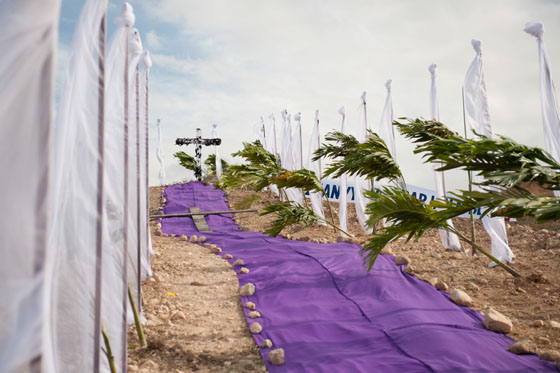Debi Lammert is an Advanced Practice Nurse from Tulsa, Oklahoma, specializing in Pediatrics and Pediatric Surgery/Cardiology/Cardiac Surgery, and a long-time volunteer with Children’s Heart Project. She blogs about a memorable trip from the early years of the project.
I was anxious about the trip from the start. Meeting the mothers and children in Bosnia the day before travel only confirmed my uneasiness.
Amira, a 13-month-old girl, was irritable and easily fatigued, with a timid and stressed mother. Seventeen-month-old Mustafah was even more concerning—a slightly dusky-blue color even when calm, due to cyanotic (blue) heart disease known as Tetralogy of Fallot. Mustafah’s mother Miriana was young—18 years old—and not his usual caregiver; she fumbled with the simple task of changing his shirt or giving him a bottle.
This was also the translator’s first trip. None of the Bosnians had ever traveled out of the country. Both toddlers were “lap children,” without assigned seats. They would need to be held on all flights unless extra seats were available nearby. We had been instructed not to wear our signature T-shirts or identify ourselves as a Samaritan’s Purse Children’s Heart Project group due to some previous issues in travel from Bosnia, so we could not expect any special attention or accommodations.
Anticipating a challenging trip, I had taken a few precautions. My home prayer group had our flight schedule and the leader, Nancy, had promised to remind them to pray. One of the cardiologists that I worked with had provided some medications that might be needed. The moms had extra doses of scheduled medications for each child.
The truth, though, was that despite preparation and planning, anything could happen in the air during our flights. Once we were at 37,000 feet over the ocean on a commercial plane, there would be very little we could do to deal with a congenital heart disease-related emergency. Tetralogy of Fallot is especially concerning. Children with this defect can die from low oxygen levels due to hypercyanotic episodes—“Tet spells”, as they are known—turning very blue and even becoming unconscious, as the heart works inefficiently and little or no oxygen is pumped to the lungs.
The flight from Sarajevo to Vienna went well, with the children sleeping the entire two-hour flight, exhausted from our early departure. We departed Vienna in the early morning hours on Good Friday. As we settled into our seats for the nine-hour trans-Atlantic leg, the other passengers eyed us warily. No extra seats were available, and the toddlers were already geared up. It would be a long flight!
The crying decreased after we reached cruising altitude and Amira and Mustafah were able to play on the floor in the bulkhead area at our feet. Amira quickly tired and fell asleep. Trays were picked up after the meal, the lights dimmed, and flight attendants retired to the back of the plane.
We were almost four hours into the flight; most passengers slept or watched movies. Mustafah, however, began to squirm and fuss. His mom and I could not distract or console him. Eventually the translator showed Miriana the nearby restroom, suggesting that maybe he needed a diaper change. We heard him crying loudly through the door.
Suddenly, the crying stopped. Miriana emerged, panicked, carrying a grayish-purple, limp, barely-breathing Mustafah, in the mist of a full-blown hypercyanotic spell.
My heart dropped. We were well over the Atlantic Ocean by now, at least several hours away from anywhere that we could land to obtain medical care. In a matter of minutes, the situation had gone from concerning to life threatening!
Quickly, I sent the translator to find a flight attendant while grabbing the emergency oxygen tank from an overhead bin, fitting the mask over his small face. As I gave a medication injection, I prayed, over and over again, “Please don’t let this child die; please don’t let him die!”
Taking Mustafah from his terrified, sobbing mother, I held him in a special position, all the while continuing the plea, “Don’t let him die, Jesus, please don’t let him die”! The translator and I prayed continuously, desperately, having done everything that we could do ourselves to break the episode.
The crisis lasted for a long, intense 20 minutes. Then gradually, Mustafah’s oxygen levels began to rise and his breathing normalized. Slowly he regained a normal color and fell into a deep, restful sleep.
The rest of the flight was uneventful. Mustafah awakened as we landed on the East Coast. He was in a good mood, and appeared fine. We continued onto our next flight, finally arriving at our destination city in the wee hours of the morning.
The next day I received a call from Nancy, the prayer coordinator. She related her experience the day before.
She had entered the sanctuary of her church early for the Good Friday service. Sitting quietly in a pew, she was suddenly seized with the urgency to go to the altar and to pray. Her desperate, intense prayer? “Jesus, please don’t let that little boy die; heal him, don’t let him die. Please don’t let him die.”
For 20 minutes she interceded, seeing in her mind a little toddler boy, blue and unconscious, in my arms on the plane. Then, as suddenly as she had been overcome with the need to pray, she felt a release and a calmness overtake her.
Though we had been in different time zones, the timing of Nancy’s urgency to pray was exactly the time that we were in crisis in the air. Her prayer was the exact prayer that we were praying, at the exact time. “Jesus, please don’t let him die!” And once the crisis was over, she was released to stop praying and knew that the little boy would be OK.
About a year after this event, I was able to see Mustafah and his mother. He was healed, pink and active, with normal activity levels and coloring.
Miriana, previously a very strict Muslim, told the story of the crisis, “How a God called Jesus healed her son when he died on the plane.” When she thought he was dead, he “came back to life,” so that he could continue to America and be healed of his heart disease.
It turned out to be a very good Good Friday trip, after all!





